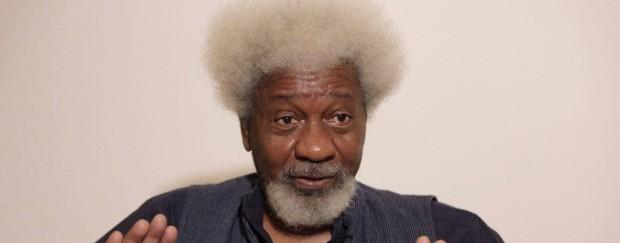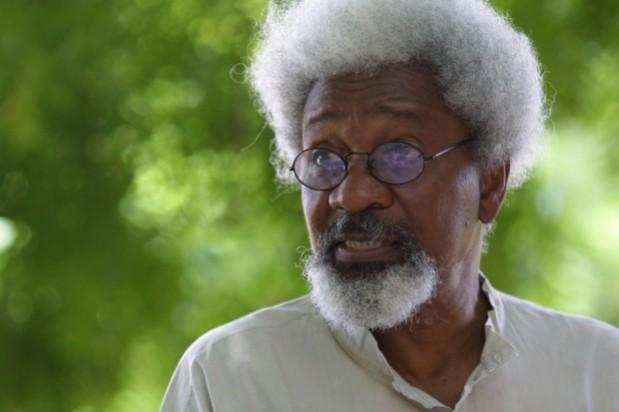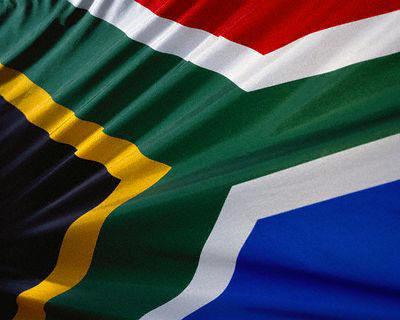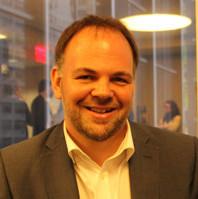Wole Soyinka: “We must respond to those who feel they have a divine right to mess up our lives” – By Magnus Taylor

 Wole Soyinka is 80 this year and has long inhabited that illustrious pantheon of African literary greats, the Godfather of whom was the late Chinua Achebe. But Soyinka achieved something that his contemporary, Achebe (whose frail health in later years made him seem like a much older man), never did: in 1986 he was awarded the Nobel Prize for literature, the citation reading: “[he] in a wide cultural perspective and with poetic overtones fashions the drama of existence.”
Wole Soyinka is 80 this year and has long inhabited that illustrious pantheon of African literary greats, the Godfather of whom was the late Chinua Achebe. But Soyinka achieved something that his contemporary, Achebe (whose frail health in later years made him seem like a much older man), never did: in 1986 he was awarded the Nobel Prize for literature, the citation reading: “[he] in a wide cultural perspective and with poetic overtones fashions the drama of existence.”
With his resplendent, silver afro giving him the most iconic profile in Nigeria, when Soyinka talks, and he does so in long, gravelly sentences, you listen. And whilst his most famous dramatic works may be substantially metaphysical in theme, his current outlook seems more forcefully political. Or perhaps this is a product of what his admirers and questioners most want to talk about: how do we solve the “˜problem(s)’ of Nigeria? When, in reality, Wole might prefer to ponder the mysteries of the universe, the audience the RAS’ “˜Africa Writes’ lecture last night brought him firmly back down to earth.
And the problem-du-jour in Nigeria is currently quite clear: the case of the 300 school girls kidnapped by the islamist group Boko Haram from a small town in the country’s northeastern Borno state. The imaginative #BringBackOurGirls campaign has galvanized a previously ambivalent international community to pay attention to a conflict that was formerly viewed as a parochial “˜Nigerian problem’. One gets the feeling that even in Nigeria the insurgency in its poor northern regions has been viewed as something that could be effectively contained and had little impact on the oil-rich southern states.
Soyinka, however, seeks to dispel the notion that “˜Boko Haramism’, as he calls it, is a spontaneous, temporary and isolated problem: “it is a product of decades old political tactics”. Over the last twenty years, “religion has become mixed with politics to create a toxic brew”. Relations between Christians and Muslims in Nigeria have deteriorated as politicians sought grassroots support to buttress their own power. Mixed with the international rise of conservative islam after the Iranianian revolution, “people [politicians] became surrogate ayatollahs in their little religious ponds.”
Soyinka links this rise of religious radicalism with another blight of modern Nigeria: impunity. This word is often associated with a failure to prosecute powerful individuals guilty of corruption. However, Soyinka argues that it extends far beyond this to include those who engage in violent sectarian action – beatings and lynchings – in the name of religion, and survive unpunished by the legal system. “Boko Haramism”, says Soyinka, “began with the culture of impunity on religious grounds.”
Soyinka asserts that “When the first northern governor declared his state theocratic we should have said “˜No!…but the President, seeking an unconstitutional third term, needed votes from the north.” But whilst Boko Haram may have its origins within the “˜Almajiri’ foot soldiers of northern politicians, something then happened that they did not expect. The foot soldiers turned on their political mentors, forming the wild and uncontrolled movement we see today.
The insurgency has now grown beyond the capacity of the Nigerian state to control. The government and army “cannot handle it” and perhaps, should not even be expected to: it is “the responsibility of the global community. A crime against humanity has been committed.”
Soyinka calls for a new generation of Nigerians, artists or otherwise, to step up and accept leadership, for his time has now passed. It is the task of a new generation to “respond to those who think they have a divine right to mess up our lives.” But in truth, few have the wit, energy and wisdom of Soyinka to address such a problem in so convincing a style. Wole may be nearly 80, but he is certainly not done yet.
Magnus Taylor is Editor of African Arguments






The Abduction of Innocent young students and Boko Haram and the Cult of Gangsterism
Wole Soyinka is indeed correct in declaiming with vigour and insight that ‘Boko Haramism’, as he calls it, is not a spontaneous, temporary and isolated problem: rather, “it is a product of decades old political tactics—religion has become mixed with politics to create a toxic brewâ€.
The ‘Congregation of the People of Tradition for Proselytism and Jihad’—better known by its Hausa name ‘Boko Haram’ meaning ‘Western education is sinful’—is an Islamic jihadist and takfiri militant and terrorist organization governed by the gangsterism ethos without any credence to the serene intellectualism of the Islam Religion advanced by the Prophet Muhammad. Founded by Mohammed Yusuf in 2002, the Boko Haram organisation seeks to establish a “pure” Islamic state ruled by sharia law, putting a stop to what it deems ‘westernization sustained by crass colonialism’.
This Boko Haram cult of gangsterism evidenced in the violent abduction of young women from their schools must/ought be considered and regarded by all who value social order as being gangsterism in promotion of fear coupled with disregard for rule of law within society.. This abduction of innocent women reflects/refracts in the strongest lack of governance dialectic. These school girl abductions reinforce the gross lack of civil civic social order in Nigeria. President Goodluck Jonathan and his administration of governance must be held to strict account. These innocent young women were seeking only to improve their intellectual social standing grounded in learning in acquiring both academic and practical knowledge so as to enhance their personal lives along with enhancing and strengthening their society and culture in terms of prescriptive social civic civil cohesion.
The government of Nigeria has a fundamental obligation to eradicate this element of gangsterism shrouded within the veil of Islam using every and all national resources. Anything less must be considered as tacit compliance in accepting this pernicious cult of gangsterism who regard themselves as ‘law’.
Thank God for Wole Soyinka, he tells it as it is; unlike legions of Western analysts, academics & diplomats every ready to manufacture excuses for Islamic terrorists – while ignoring the plight of their victims.
It took Jonathan Goodluck 90 days to respond to the kidnapping of 234 girls, like many other incidents in Northern Nigeria it appeared his government just wanted this atrocity to go away. He has made it clear that he has little regard for the people he has been elected to govern.
undoubtedly we need a new generation of leaders, there remains 10.5 million children out of school in Nigeria many being girls, served by a government that appears to be bent on lining their own pockets. Nigeria is a major catastrophe waiting to happen if action in the very near future is not taken.
I really like the article. It portrays things in Nigeria as it is. Now, it is not time to blame any one, it is time to brig back the innocent girls taken by Boko Haram. Crime against humanity in Nigeria is crime against humanity in all corners of the world. The wold should get ready to eliminate the terrorist organization in Nigeria and elsewhere in the world.
All northern Politicias who used military advantage to take power , steal and spend all our oil money are the course and sponsor of Boko haram in Nigeria because they feel that ruling and spending oil money is there birth right. It is time for a real revolution in Nigeria just like Rawlings did in Ghana. Killing alll the old criminal politicians over night by new generation will make Nigeria move forward.
the BH phenomenon seems like the case of the “chicken coming home to roost”; but the home is being torn apart !!
politics will always be about horse trading compromises; but the language and temper, perhaps even currencies and goals in the market will depend as much on sellers as buyers. yes new leadership cos they are the sellers … but also new followership culture since they are the buyers with an inalienable right to or not to buy or who to buy from.
where ignorance and poverty distill into a toxic brew, do you go after the who or the what; nigeria must go after the ‘what’ of ignorance and poverty by compulsory education and gainful employment of the ‘who’.
and now that innocent pupils seeking education have become endangered species in the hands of ‘who’, security to guarantee safe passage becomes the third in the trio of corrections.
feed and educate the poor and see how much easier the release from the clutches of sinister groups will be compared to millions that have to be spent to redeem damages after the facts when we slacken on proactive approach.
To reduce the reservoir of Almajeris, from which the purveyors of violence recruit , our rulers must stop stealing from the pubic purse. They must start giving us what Fela Kuti called water, light; food , house. And , I add Education
Secular society has had no defenders. Artists, poets, those who love freedom of thought and expression have spoken too softly or too late. The Indian artistic elite bravely asked voters not to vote on religious grounds, but we see today the beginning of a Hindi state. Nigeria, indeed America, are no different. Even a mild comment critical of religious conservatives results is such ferocious backlash, that silence by intimidation prevails. The result: corruption and impunity. Wole Soyinka’s best observation was that allowing a northern governor to create a theocratic state was the first note in the death dance of a modern Nigeria.
buy cialis online cheap cialis
chloroquine us chloroquine buy hydrchloroquine